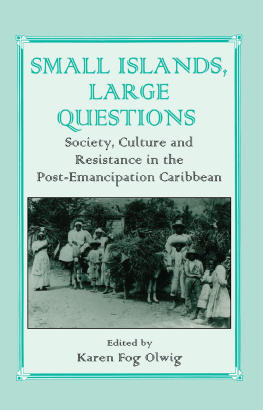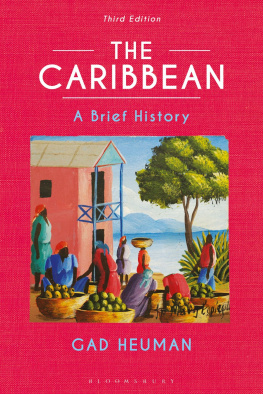Michelle Stephens (editor) - Contemporary Archipelagic Thinking: Towards New Comparative Methodologies and Disciplinary Formations
Here you can read online Michelle Stephens (editor) - Contemporary Archipelagic Thinking: Towards New Comparative Methodologies and Disciplinary Formations full text of the book (entire story) in english for free. Download pdf and epub, get meaning, cover and reviews about this ebook. year: 2020, publisher: Rowman & Littlefield Publishers, genre: Politics. Description of the work, (preface) as well as reviews are available. Best literature library LitArk.com created for fans of good reading and offers a wide selection of genres:
Romance novel
Science fiction
Adventure
Detective
Science
History
Home and family
Prose
Art
Politics
Computer
Non-fiction
Religion
Business
Children
Humor
Choose a favorite category and find really read worthwhile books. Enjoy immersion in the world of imagination, feel the emotions of the characters or learn something new for yourself, make an fascinating discovery.

- Book:Contemporary Archipelagic Thinking: Towards New Comparative Methodologies and Disciplinary Formations
- Author:
- Publisher:Rowman & Littlefield Publishers
- Genre:
- Year:2020
- Rating:5 / 5
- Favourites:Add to favourites
- Your mark:
Contemporary Archipelagic Thinking: Towards New Comparative Methodologies and Disciplinary Formations: summary, description and annotation
We offer to read an annotation, description, summary or preface (depends on what the author of the book "Contemporary Archipelagic Thinking: Towards New Comparative Methodologies and Disciplinary Formations" wrote himself). If you haven't found the necessary information about the book — write in the comments, we will try to find it.
Contemporary Archipelagic Thinking takes as point of departure the insights of Antonio Bentez Rojo, Derek Walcott and Edouard Glissant on how to conceptualize the Caribbean as a space in which networks of islands are constitutive of a particular epistemology or way of thinking. This rich volume takes questions that have explored the Caribbean and expands them to a global, Anthropocenic framework.
This anthology explores the archipelagic as both a specific and a generalizable geo-historical and cultural formation, occurring across various planetary spaces including: the Mediterranean and Aegean Seas, the Caribbean basin, the Malay archipelago, Oceania, and the creole islands of the Indian Ocean. As an alternative geo-formal unit, archipelagoes can interrogate epistemologies, ways of reading and thinking, and methodologies informed implicitly or explicitly by more continental paradigms and perspectives. Keeping in mind the structuring tension between land and water, and between island and mainland relations, the archipelagic focuses on the types of relations that emerge, island to island, when island groups are seen not so much as sites of exploration, identity, sociopolitical formation, and economic and cultural circulation, but also, and rather, as models.
The book includes 21 chapters, a series of poems and an Afterword from both senior and junior scholars in American Studies, Archaeology, Biology, Cartography, Digital Mapping, Environmental Studies, Ethnomusicology, Geography, History, Politics, Comparative Literary and Cultural Studies, and Sociology who engage with Archipelago studies. Archipelagic Studies has become a framework with a robust intellectual genealogy.. The particular strength of this handbook is the diversity of fields and theoretical approaches in the Humanities, Social Sciences and Natural Sciences that the included essays engage with. There is an editors introduction in which they meditate about the specific contributions of the archipelagic framework in interdisciplinary analyses of multi-focal and transnational socio-political and cultural context, and in which they establish a dialogue between archipelagic thinking and network theory, assemblages, systems theory, or the study of islands, oceans and constellations.
Michelle Stephens (editor): author's other books
Who wrote Contemporary Archipelagic Thinking: Towards New Comparative Methodologies and Disciplinary Formations? Find out the surname, the name of the author of the book and a list of all author's works by series.






